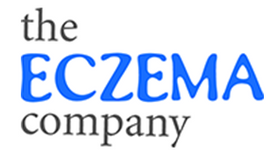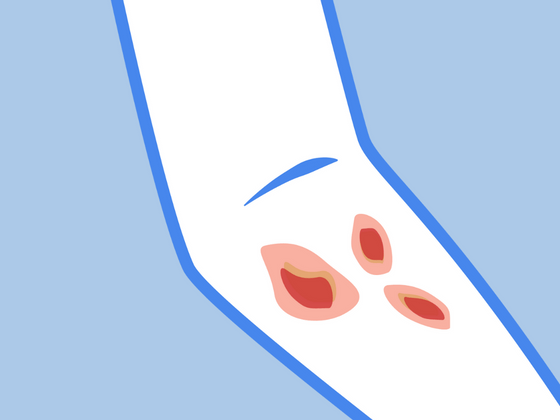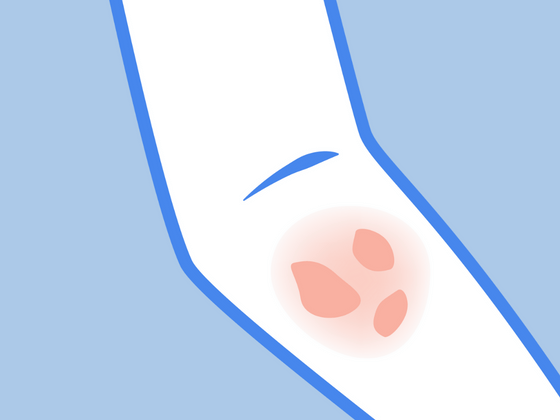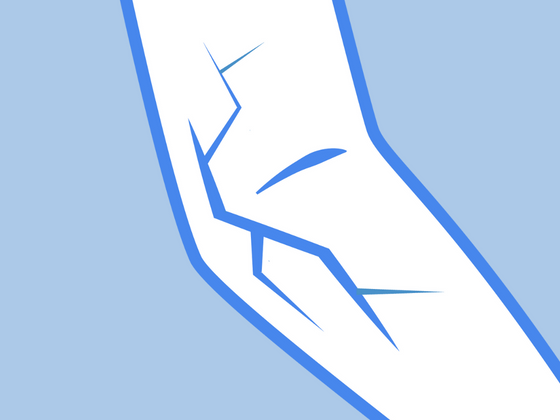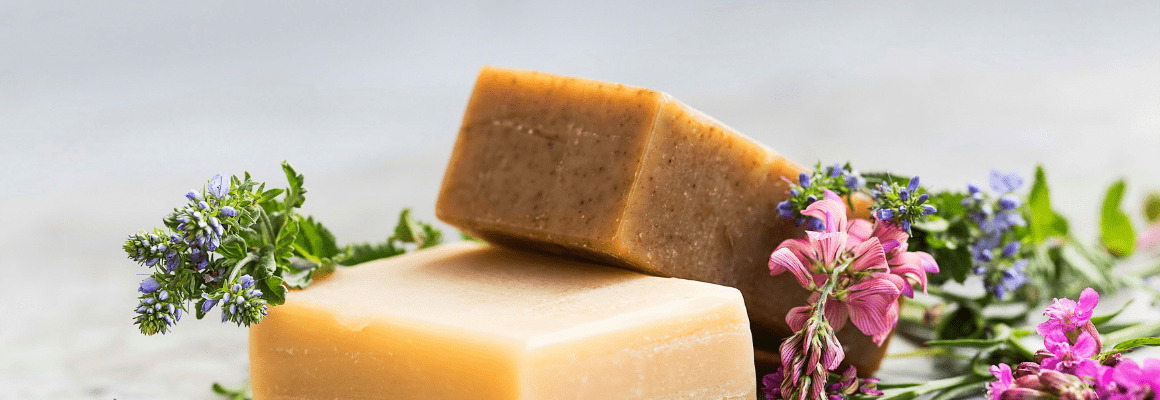In recent years, doctors have prescribed bleach baths to those suffering from eczema. There have also been numerous studies like this one that indicate a reduction of bacterial infections in eczema patients when using bleach baths.
The reality is that bleach is a chemical and toxic. As true believers in natural eczema treatments, we believe there are several other safe alternatives to eczema bleach baths.
Read on to discover 5 types of natural baths you can try today to help reduce itchy, irritated skin.
Baking Soda Baths
Many dermatologists suggest bathing with bleach for eczema because it eliminates bacteria from skin that can cause further irritation and possibly an infection.
Baking soda is a wonderful alternative to bleach because it can help balance skin's pH while reducing skin inflammation. It is also a natural antiseptic that can help reduce harmful bacteria.
For a baking soda bath, simply add about 1/2 to 1 cup of baking soda into lukewarm water (1/4 for smaller children). Once the baking soda dissolves, soak in the bath for a maximum of 40 minutes.
Oatmeal Baths
Oatmeal is also a great alternative to eczema bleach baths, specifically colloidal oatmeal. Oatmeal is highly rich in beta-glucans which can help reduce skin inflammation and stimulate collagen productions. Oatmeal also helps create a protective barrier against irritants while also providing additional nutrients to the skin.
Colloidal oatmeal not only helps with eczema, but it can provide relief for all types of itchy skin including rashes, hives, bug bites and more. Simple add 2-3 cups of colloidal oatmeal powder to lukewarm water and submerge the affected area.
Apple Cider Vinegar Baths
Like bleach, apple cider vinegar is an astringent that can help eliminate bacteria and reduce the risk of infection.
Apple cider vinegar also has anti-inflammatory, antimicrobial and antiseptic properties, as well as a variety of nutrients and enzymes that can all help improve skin health.
Dr. Peter Lio of the Chicago Integrative Eczema Center recommends starting with 1 cup (then building up to 4-5 cups) and soaking for 10 minutes. He also recommends soaking twice daily for flare ups or 1-2 times per week if eczema is less severe.
Epsom Salt Baths
Epsom salts, similarly to oatmeal are being used for a variety of itchy skin conditions.
Epsom salt is a hydrated salt that is made up of magnesium and sulfate, both of which help regulate a number of enzymes in the body while flushing out toxins. Combined, these compounds can offer relief to itchy, red and dry skin by keeping out toxins and pathogens that are responsible for inflammation and infection.
There are a variety of epsom salt products on the market, but we suggest this one. For bathing, make sure to follow the label's instructions.
Essential Oil Baths
Essential oils can also be a wonderful alternative to bleach. Various essential oils have been proven to be effective against certain forms of staph infections. For example, both thyme and eucalyptus have proven to combat staph infections with their antibacterial properties [1].
Just remember that in order to avoid further irritation, it's important to dilute essential oils. These oils usually come very concentrated, so it's important to mix it with a carrier oil or water to reduce its potency.
For children under five, it is always best to discuss types of bath treatments with your medical practitioner. For more information on bathing babies with eczema, check out these 4 types of baths for babies with eczema.
Post-Bath Treatments
With any type of bath, eczema prone skin is at risk for dehydration and further inflammation if not properly moisturized post-soak.
To deepen the effects of these baths, we suggest trying out a nourishing and soothing cream like this Organic Manuka Skin Soothing Cream. This creamy balm will reduce itching and heal dry skin while providing anti-inflammatory and anti-bacterial properties.
Lastly, this Calendula Oil for Eczema is also a wonderful hydrator for post-bath skin. Simply rub on your body or face for a calming and soothing moisture boost.
Remember, bleach baths might not always be the best solution. Natural bathing treatments and using a natural moisturizer can provide eczema relief and can also help reduce itchy skin at night.
Resources
https://www.ncbi.nlm.nih.gov/pubmed/19576738
------------------

Bio: Laura is a contributor and content developer for The Eczema Company. She is in no way a medical professional. Her comments, suggestions, and reflections are not intended to replace any medical advice. Always seek the help of a medical professional before undertaking any diet or lifestyle changes.
